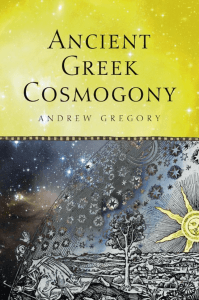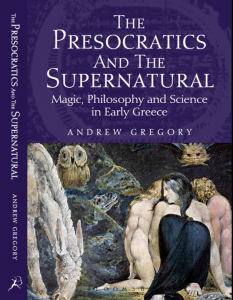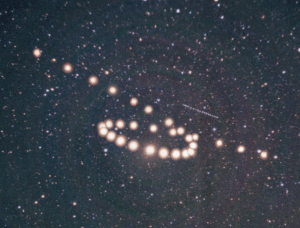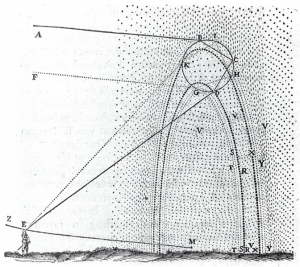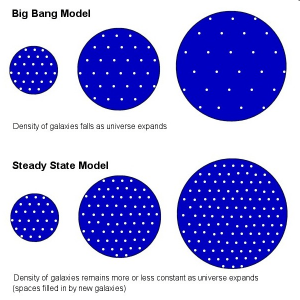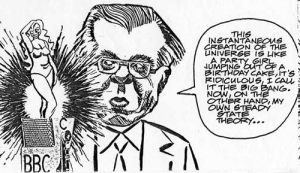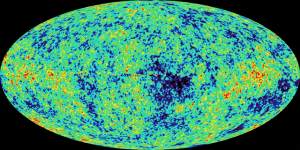Wonderments of Cosmos Seminar 4: Andrew Gregory
By Lucy M J Calder, on 2 May 2014
This, the final seminar in our fascinating series, took place on 18th March 2014 . The talk was given by Andy Gregory (Science and Technology Studies), with respondents Michael Scott ( LSE Anthropology) and Jane Grisewood (Central St Martins).
You can download the audio file HERE.
The seminar took place one day after BICEP2 announced the first credible evidence for gravity waves, which in itself is indirect evidence for cosmic inflation. Donnacha Kirk kindly gave us a summary of this news before Andy began his talk. I am posting the notes from this talk below:
HOW UBIQUITOUS ARE COSMOLOGICAL QUESTIONS (AND ANSWERS)
Notes by Andy Gregory (Science and Technology Studies)
How do ideas of world/ cosmos/ universe change over time?
Do we wonder at the same things in the same way? What exactly do we say we’re wondering at and why are we wondering?
Do we all ask the same questions in cosmology and expect the same kinds of things from the cosmology we propose?
Ask those questions of cultures and of disciplines.
Cosmos, verb cosmeo, to order or arrange, with strong sense of good.
Cosmology, cosmogony, cosmetic all derive from this root.
A Greek cosmos is:
Physically well ordered
Aesthetically good
Morally good/indicative of a political system
Is this a change from the cultures prior to and around the Greeks?
Yes. Cosmos and invariance – in a well ordered world, the same things happen in the same circumstances.
Contrast this to mythologies with arbitrary, capricious gods – interfere with the running of the world.
In one sense this is a beginning of cosmology? Before this people didn’t have the same sense of Cosmos, where everything happens in a natural way, without Gods interfering.
Wonderment?
In Greek cosmology there’s a shift from wonder at gods to wonder at the cosmos.
In particular, there is wonder at regularity of the heavens.
Wonder at what their cosmological models can do.
Plato wrote his dialogue Timaeus circa 360 BC, which speculates on the nature of the physical world and human beings. He describes the the sun, moon and planets moving in regular circular motions around the Earth. This model isn’t contradicted until about 1609 when Kepler introduces ellipses. However, it doesn’t explain retrograde motion. Eudoxus managed to combine four regular circular motions to give something like this pattern. Surely this is something to be in wonderment at?
Modern cosmology?
Does Greek philosophical cosmology differ from modern empirical cosmology?
Yes, but this contrast can get overdrawn.
Empirical aspects to Greek cosmology.
Philosophical aspects to modern cosmology?
Disenchantment?
Have we lost a form of wonder as cosmology has generated scientific explanations of phenomena?
Have we become ‘disenchanted’ with the world around us?
One can argue that there’s a movement from a notion of Cosmos to a notion of Universe. We think there is order in our universe, but we tend to think of it as brute order. We have, perhaps, lost the sense of an aesthetically beautiful universe, and the idea of a morally and politically good Cosmos.
John Keats, 1795-1821.
Do not all charms fly
At the mere touch of cold philosophy?
There was an awful rainbow once in heaven:
We know her woof, her texture; she is given
In the dull catalogue of common things.
Philosophy will clip an Angel’s wings,
Conquer all mysteries by rule and line,
Empty the haunted air, and gnomed mine –
Unweave a rainbow…
Interesting semantic shift: to Keats, awful (full of awe!) meant awesome. The terms we use to describe wonder are subject to semantic drift.
For Keats, to understand the universe by rule and line meant to take away its wonder.
On the other hand, I find Descartes’ analysis of the rainbow awesome and worthy of wonder.
Xenophanes
This process has been going on science antiquity.
Xenophanes has an explanation for the rainbow (no longer a portent).
Produces a natural explanation for St. Elmo’s fire.
Xenophanes says that “the star-like phenomena which occurs on ships, which by some are called Diaskouri, are small clouds that glimmer on account of a special agitation.”
Another divine/ magical phenomenon explained…
Some questions addressed by ancient Greeks are still addressed by modern cosmology.
Ubiquitous to all cultures?
Origins?
Do we explain the origins of the cosmos as:
A unique event, unlike anything we see happening now?
OR An ongoing process, similar to processes we see happening around us today?
Big Bang & Steady State
Mid-20th century cosmology debate between:
Steady State cosmology – continuous production of matter.
Big Bang – a single generation of matter.
SS held ascendency (late 1940s through to the 1950s) until observations went the way of BB.
Hoyle etc. claimed various merits for steady state cosmology
Wonder?
‘Big Bang’
Has gone from being a term of abuse ( Hoyle: 1949) to a term of wonder in under 50 years?
Greeks & others
Debate on this among Greeks.
Similar debate about zoogony, anthropogony.
Some more Greek questions.
What is outside the universe?
Is the universe finite or infinite?
Can there be generation from nothing?
Archytas Paradox.
The cosmos cannot be finite because I can always imagine standing close to the edge of the cosmos and poking a stick into what is beyond the supposed limit.
As I can imagine doing this at any supposed limit, the cosmos must be infinite.
Replies
Ancient answers:
Physically you can’t do this.
There is nothing beyond to poke your stick into: no time or space.
Why would you even want to do this?
Earliest lambda (cosmological constant)?
Einstein, static universe with gravity – lambda introduced to prevent collapse.
Newton, static universe with gravity – worry about conflagration of stars as they came together: has to be something which holds these stars apart.
Derveni Papyrus (4th or 5th century BC), fire is the dominant element in the cosmos and is properly spread around the Cosmos. However like is attracted to like, such that fires tends to gather together. This would lead to a universal conflagration. As we don’t see this happen there must be something which prevents this.
The Ancient Greeks also move away from a flat Earth and from a supported Earth.
Cultures prior to and around the Greeks typically posit hemispherical cosmologies: a flat Earth and a hemispherical vault e.g. ancient Egypt and Babylonia.
The idea that the Earth is not supported but because its at the centre of the Cosmos it has no reason to move in any direction. If we have a limited Cosmos, that too has no reason to move in any direction.
If we have nothing to begin with, how can Cosmos grow from that?
“What birth will you seek for it? In what way, from what source did it grow? I will not allow you to think or say from not being, for it is not to be thought or said that it is not; and what necessity would have driven it later rather than sooner, beginning from nothing, to grow?”
Parmenides Fr. 8, 5 -10.
Conclusion that nothing can be produced ex nihilo – has worried theologians ever since.
(Cats of course can be created ex nihilo!)
Is wonderment knowledge relative?
Euler’s identity:
e^iπ +1 = 0
The base for natural logarithms, multiplied by itself π times the square root of -1 times, + 1, = 0.
Wonder?
I wonder at this, three such fundamental and irrational numbers fit together in this elegant way.
Gauss – ‘anyone who does not see immediately why this relation has to be so will never be a first rate mathematician’.
Did Gauss/ do real mathematicians wonder at Euler’s identity?
Once we know much more about something, does our wonderment cease to be?
Another example is the Friedmann equation of cosmology: simple premises and deep consequences.
Does wonderment at the cosmos get expressed in painting?
Can art tell us anything about the history of astronomy/ cosmology?
Is there wonderment in, and at, the artefacts of astronomy and cosmology?
In the early 17th century there was a debate over three cosmological systems:
Ptolemy (ancient world); Tycho Brahe; Copernicus
Black and white illustration: Tycho Brahe’s system is weighing more heavily in the scales. The eyes on the man’s body signify that he is the spirit of observation. Hand of God – all stems from Him.
Meno’s paradox (from Plato)
“How will you search for this thing, Socrates, not knowing at all what sort of thing it is? For what sort of thing that you do not know will be proposed in your search? Or even supposing that you should meet with this thing, how will you know that it is this thing which you do not know?”
Plato, Meno 80d
Explanation?
If you want to learn, either you know something, in which case there’s no point in learning; or you don’t, in which case, how are you going to know when you’ve come across the thing you’re looking for?
Science seems to have solved this problem practically, in the sense that, in a great deal of science we know exactly what we’re looking for and what sort of answer we should be given.
But have we solved this issue in relation to the origins of the Cosmos? Do we know what sort of answer we would like??
I don’t think we have. It’s a major issue within cosmogony. What sort of explanation do we want?
If there is neither space nor time prior to the big bang, the standard causal explanations are not appropriate.
It’s an open question.
The Athens Metro has this warning sign:
Prosoche Ton Kenon
Prosoche means ‘Beware’
Ton Kenon, to anyone who has studied ancient philosophy, means ‘the infinite void’.
Sartre? Existentialist void?
Greek Orthodox slogan? Absence of god?
Actually it means:
Mind the gap (between the train and the platform)!
There is a moral here about over interpreting the Greek text and over interpreting ideas of space, but what it is, I leave to you…
 Close
Close


